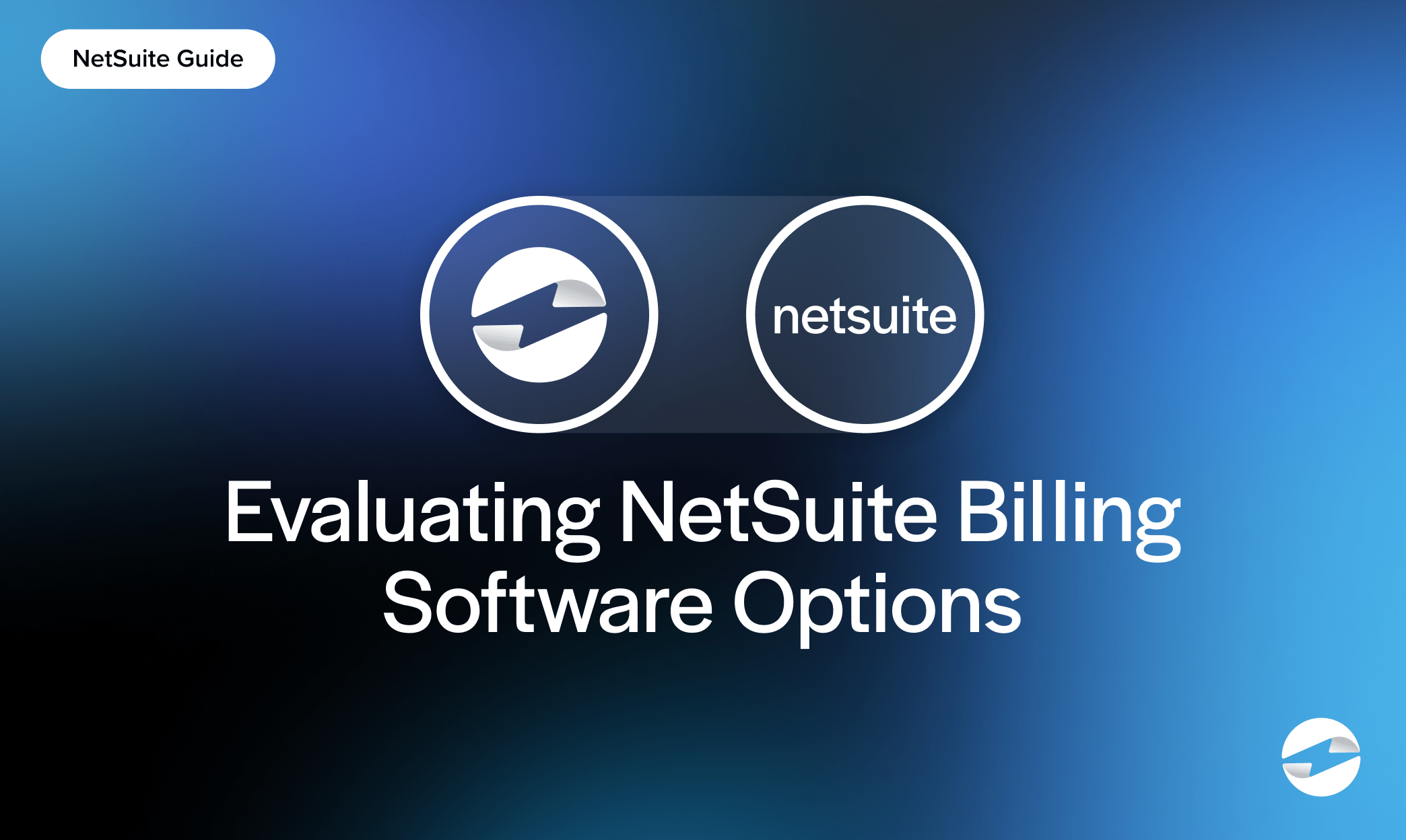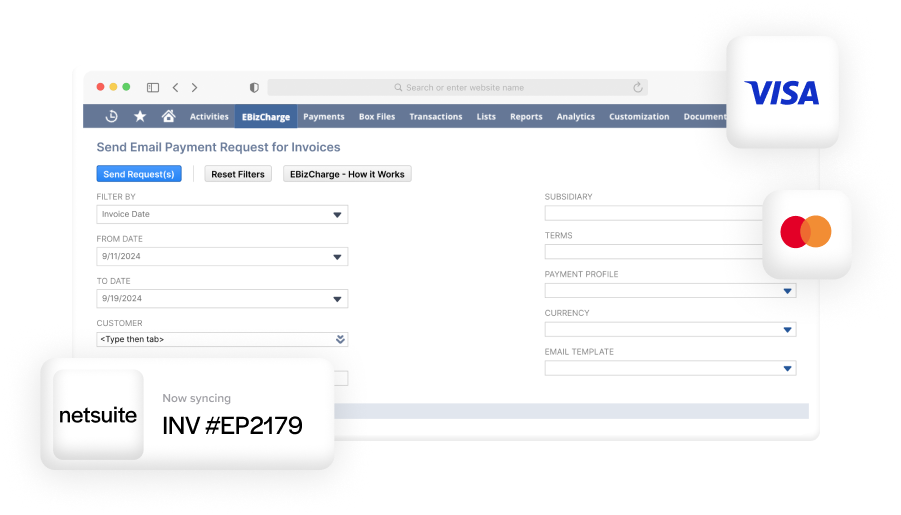Blog > Evaluating NetSuite Billing Software Options
Evaluating NetSuite Billing Software Options
Billing isn’t just about sending invoices and collecting payments—it’s about keeping your operations running smoothly, your books accurate, and your customers happy. For teams working within NetSuite, choosing the right billing solution can make or break that experience. Whether you’re in finance, operations, or IT, finding a tool that fits how your business runs—and how your customers pay—is key.
This article is here to help you evaluate your NetSuite billing software options, understand what really matters, and make confident decisions that support both your team and your long-term growth.
Core Features to Look for in NetSuite Billing Software
NetSuite is a cloud-based enterprise resource planning (ERP) platform used by thousands of businesses to manage everything from financials and inventory to customer relationship management (CRM) and eCommerce – all in one integrated system. For companies using NetSuite, the right billing software extends its capabilities and helps tailor financial operations to match real-world complexity.
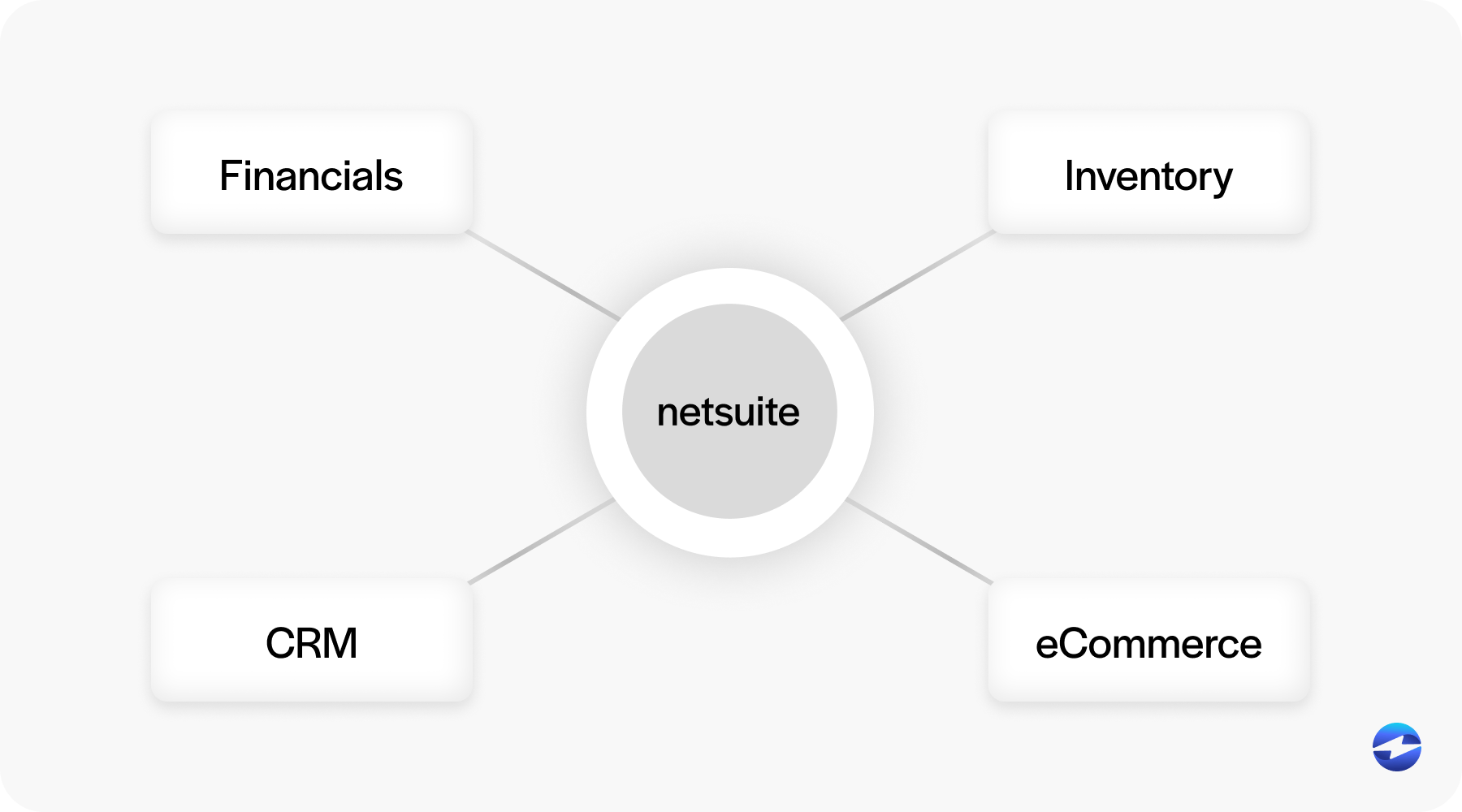
Every business has different needs, but there are a few core features you should expect from any solid billing software for NetSuite:
- Invoicing and subscription billing support – Flexible templates and recurring billing tools help automate the routine.
- Usage-based and milestone billing capabilities – Especially helpful for software as a service (SaaS), consulting, and service businesses.
- Custom pricing and discount logic – Tailored terms for key customers, bundles, and time-sensitive offers.
- Automation for billing cycles, approvals, and reminders – The less manual tracking you do, the fewer things fall through the cracks.
- Real-time payment processing and reconciliation – Immediate updates to your books make month-end a lot easier.
These are baseline expectations. You’ll find them in some form across leading NetSuite billing software options, but the quality, ease of use, and flexibility can vary widely.
Built-In NetSuite Billing Tools vs. Add-On Solutions
NetSuite includes a solid foundation for billing through its native NetSuite billing module. For basic recurring billing, invoice generation, and integration with NetSuite’s accounting tools, it gets the job done.
But as your billing complexity increases—like multiple pricing tiers, subscription add-ons, usage tracking, or customer-specific agreements—the native tools may start to feel limiting. That’s when many teams begin exploring third-party NetSuite billing software features to fill the gap.
The good news is, if you’re using NetSuite, you’ve already got the architecture to build on. The challenge is knowing when it’s time to move beyond built-in features.
Benefits of Custom and Third-Party Billing Solutions
When your needs start stretching the limits of what NetSuite offers natively, looking at NetSuite billing competitors makes sense. These solutions often offer:
- Tailored workflows that reflect your business model
- Stronger support for hybrid billing strategies (SaaS, milestones, subscriptions)
- Third-party integration with CRM, eCommerce, and tax tools
- More flexible reporting, audit support, and compliance management
Some billing platforms even offer enhanced NetSuite payment methods, embedded invoicing tools, and a branded NetSuite payment portal. These extras don’t just improve internal workflow—they directly affect customer experience.
Evaluating Third-Party Integration Options
Once you’ve decided to explore NetSuite billing competitors, the next step is to assess how well they actually fit into your environment.
- Compatibility – Is the tool designed for NetSuite? Does it play nicely with your workflows and data model?
- Deployment and user experience – How long does it take to get up and running? Will your team actually use it?
- Support and reputation – Can you get help when you need it? What do current users say?
- Cost vs. value – Price matters, but so does long-term ROI. A tool that saves hours per month might pay for itself quickly.
This is also where features like direct access to payment processor integrations, support for advanced credit card processing, or automated reconciliation can make or break the deal.
Key Questions to Ask Before Choosing a Billing Tool
After assessing the technical capabilities of different tools, it’s just as important to ask the right strategic questions. These will help you narrow down billing software for NetSuite based on how well it fits your current and future needs—not just what’s on the feature list.
- What billing models do we use today and plan to use in the future?
- How much do we rely on manual intervention today?
- What integration points are must-haves (e.g., payment processor, CRM, eCommerce)?
- How will this billing solution scale with our growth?
Taking time to answer these questions will help ensure you invest in a billing platform that doesn’t just solve today’s challenges—but evolves with your business in the long run.
Making the Right Choice: What Great NetSuite Billing Looks Like in Practice
Choosing the right NetSuite billing software isn’t just about ticking boxes—it’s about building a system that works the way your team does. Whether you’re sticking with the basics or layering in third-party integration tools, your goal should be simplicity, accuracy, and ease of use.
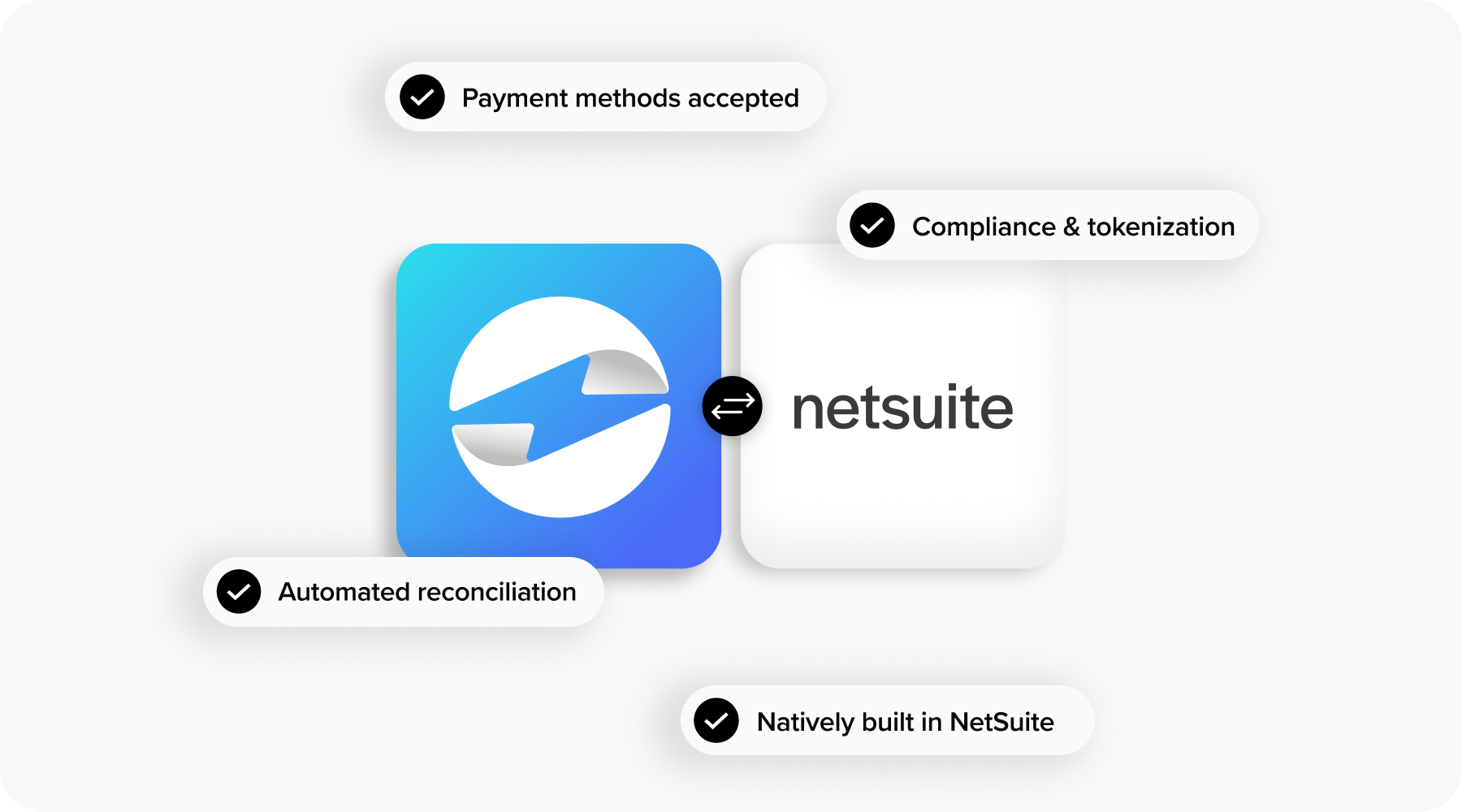
Don’t settle for clunky processes or outdated features. Look for a solution that connects with your payment processor, supports the NetSuite payment methods your customers want, and handles credit card processing without extra manual steps.
In the end, great billing is invisible. It just works—quietly supporting your business and giving your team the space to focus on what matters most.
EBizCharge and NetSuite Billing
EBizCharge is one NetSuite billing software option that stands out for teams looking to simplify billing while improving payment processing. It embeds directly within NetSuite, so your team doesn’t need to switch platforms to handle credit card processing, manage invoices, or reconcile payments.
Its key features include real-time payment posting directly in NetSuite, allowing transactions to be recorded instantly and eliminating delays. Automated reconciliation is another major benefit, helping teams avoid time-consuming manual matching. EBizCharge also offers a branded NetSuite payment portal for customers, providing a professional and user-friendly interface to submit payments. Additionally, it supports a range of NetSuite payment methods, including ACH transfers, credit cards, and more, and giving customers the flexibility to pay the way they pay.
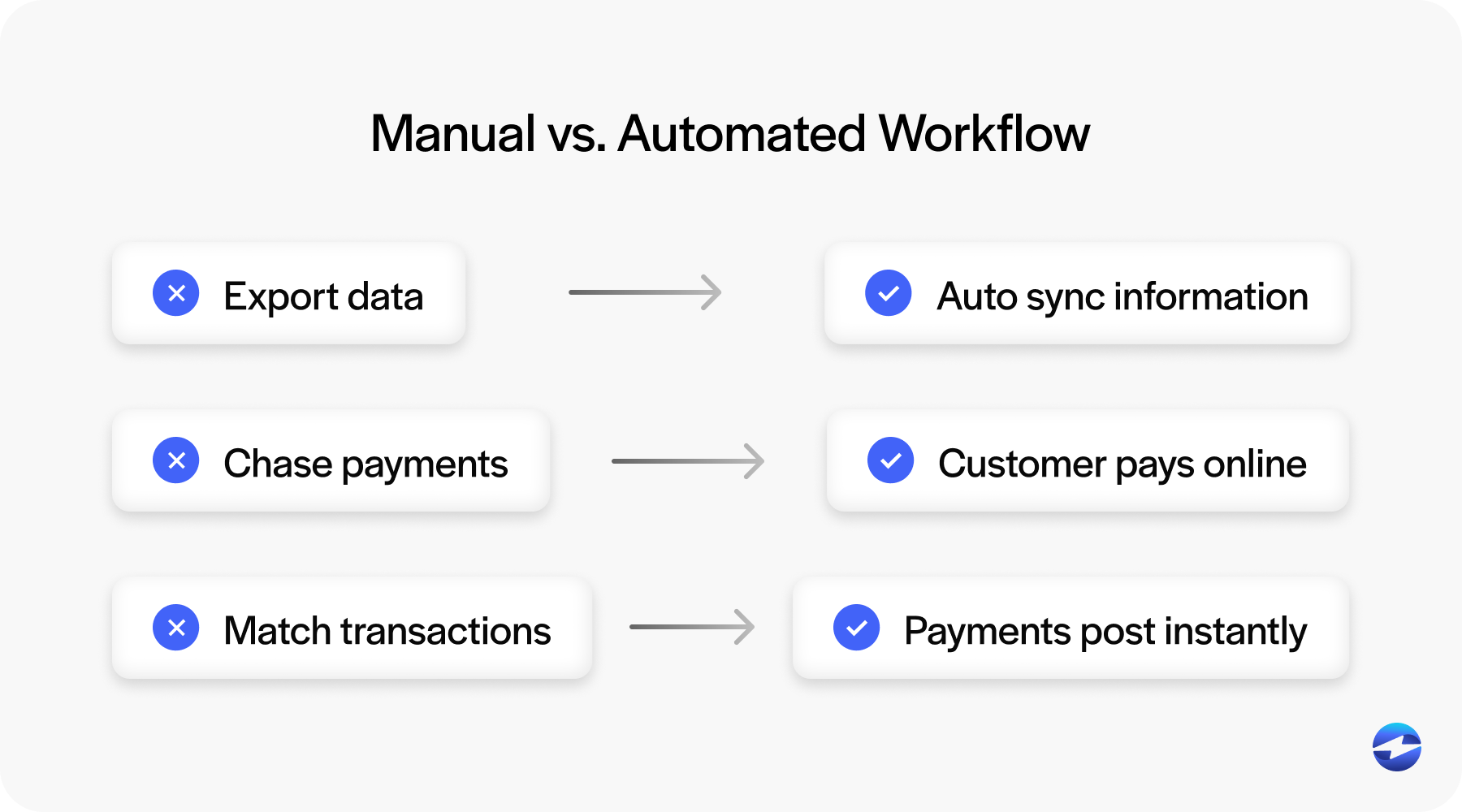
EBizCharge is also a trusted payment processor, offering competitive rates and strong security. Many teams turn to it after experiencing gaps in other NetSuite billing competitors, especially when automation and real-time insight are priorities.
Choosing the right NetSuite billing software isn’t just about ticking boxes; it’s about building a system that works the way your team does. Whether you’re sticking with the basics or layering in third-party integration tools, your goal should be simplicity, accuracy, and ease of use.
